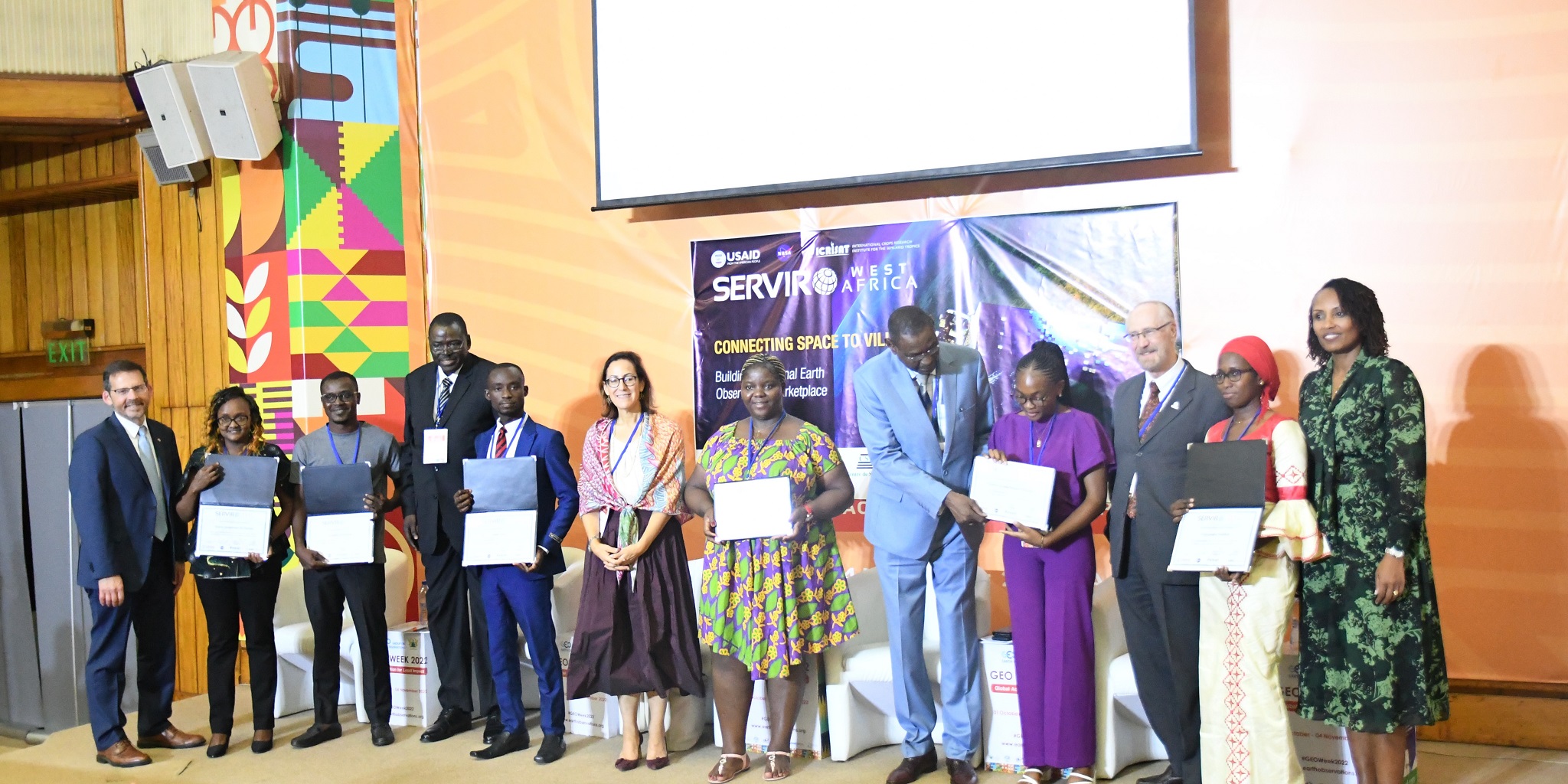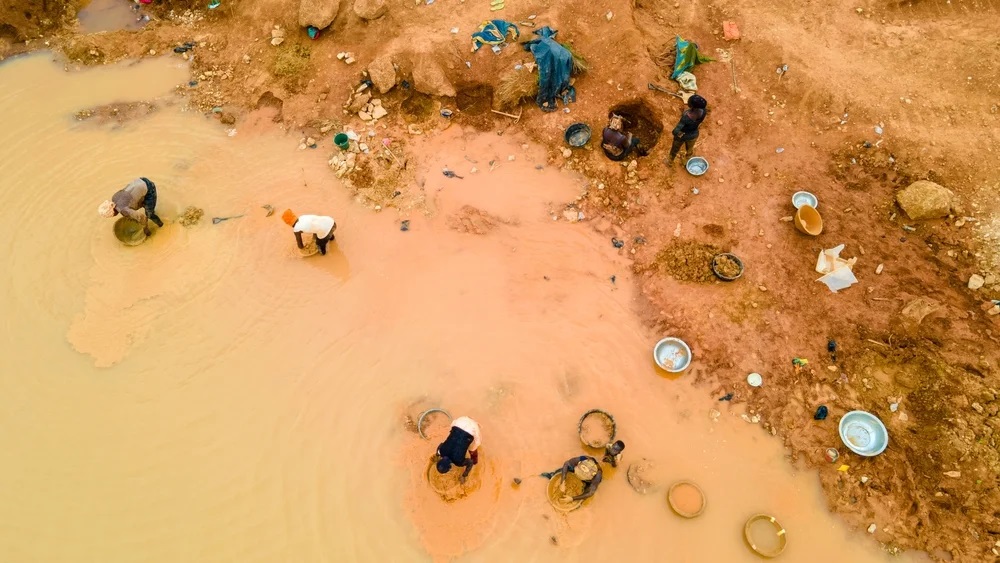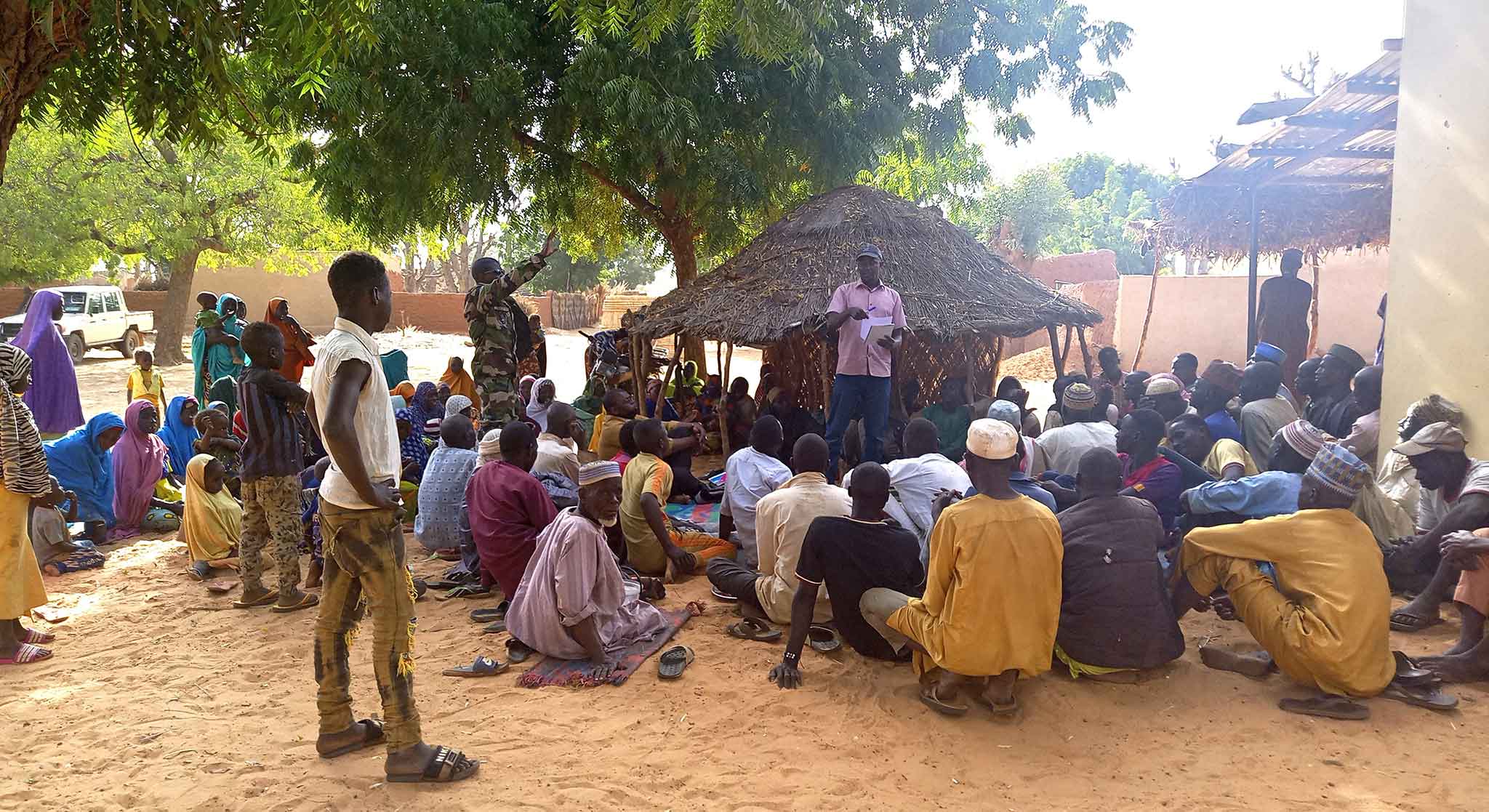The world is facing numerous challenges that continue to put our existence in danger. From floods, which uproot vast populations, and droughts, which cause food crises, to an increase in seasonal temperatures. The importance of coastal ecosystems like mangroves and seagrasses in reducing the effects of climate change and enhancing human wellbeing has also been demonstrated. Collaboration across organizations is more important than ever to address these challenges to our existence.
Recently during GEO Week 2022, SERVIR launched its second phase in West Africa. This year’s GEO Week convened government institutions, academic and research institutions, data providers, businesses, engineers, scientists, and experts to create innovative solutions to global challenges at a time of exponential data growth, human development, and climate change that transcend national and disciplinary boundaries.
The United States Agency for International Development (USAID) in collaboration with NASA, implementing partner ICRISAT and scientific partners launched the second phase of the SERVIR West Africa program, known as SERVIR West Africa. The event was held at the Accra International Conference Centre, Ghana on 1 November 2022 and included an award ceremony for the SERVIR Small Innovation Grants Program, where six (6) AIMS alumni were awarded innovation grants as part of the 2022 intake.
SERVIR’s mission is to “connect space to village” by using satellite data to address critical development challenges, which affect communities. In this second phase, USAID has committed nearly $16 million over the next five years to help West African countries use satellite data to address development challenges in food security and agriculture; water and hydro-climatic disasters; weather and climate; land cover and land use change; ecosystems services; and a newly introduced financial service.
During GEO Week 2022, AIMS CEO, Hakizimana Lydie officiated the Small Innovation Grants Program Award Ceremony, awarding six AIMS alumni from Cameroon, Niger, Senegal, Burkina Faso, and Sudan to apply data science tools and techniques to enhance remote sensing and Earth Observations services.
AIMS alumni Isaac, Pauline, Yacouba, Soona, Fatoumata and Das Dores were selected as fellows. “We are so proud of all your projects and can’t wait to celebrate you even more. I am excited to see our African youth rise to the challenge, and I look forward to supporting them in doing extraordinary things.” – Lydie Hakizimana, AIMS Global CEO
During this new phase, this program will empower West African countries to use satellite data to address critical challenges in food security and agriculture, water and hydro-climatic disasters, weather and climate, land cover and land use change, and ecosystems services.
The AIMS CEO underscored: “I would like to use this opportunity to congratulate all selected fellows of the SERVIR Small Innovation Grants Program – 2022 intake. I note that this program is very competitive. In a short period, 99 applications were received from 45 passionate AIMS alumni across 15 African countries; including 32% women. Through a competitive, merit-based selection process, I am glad to learn that from the six (6) selected fellows, four (4) are women. Bravo to all the finalists and everyone who was involved in the selection process! As you know, my expectations are high, and my office will be monitoring your progress”.
Mrs. Jo Lesser-Oltheten, Mission Director, USAID West Africa applauded USAID, NASA and regional partners for launching SERVIR West Africa 2 and the commitment it represents to the governments and people of the region. She noted: “Through geospatial technology, we will continue to generate critical knowledge that informs good governance and public policy for better nutrition, food security, climate resilience and a host of other outcomes that we collectively seek for dryland communities in West Africa and beyond”.
The first phase of SERVIR West Africa was launched in 2016. This second phase will be implemented in collaboration with several West African institutions as well as universities and international organizations. These institutions include the Regional Center for Agro meteorology, Hydrology and Meteorology, the African Regional Institute for Geospatial Information Science and Technology, the Centre de Suivi Écologique, the Centre for Remote Sensing and Geographic Information Services, the Institut Supérieur d’Études Spatiales et des Télécommunications, the African Institute of Mathematical Sciences (AIMS), the University of Florida, and Columbia University.
Contact: All enquiries must be sent to aii@nexteinstein.org.




